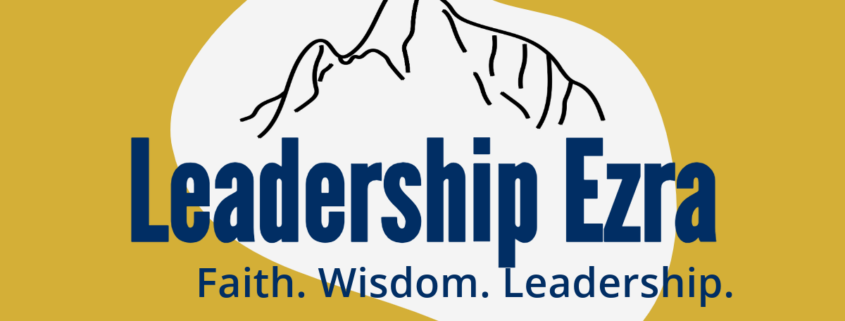Leadership Ezra: Who’s in Charge Here? (Part 1, Introduction)
In thirty years of life and experience in leadership roles in Christian organizations, there are lessons that I learned (and continue to learn) from the life of ministry to which God called me. Over that time, He taught me lessons based on stories, principles, and truths from the Bible that have been translated into personal application. This series of articles focuses on a set of those lessons drawn from the book of Ezra in the Old Testament (and then published in my latest book), and this week, in part 1, we introduce the series.
One of the things I most love to do is to connect the dots between Scriptural truth and life application. More specifically, I love to do this within the realm of leadership. And that’s how I ended up seeing some great lessons on leadership from a story in the Bible. In this case, it was the story in the book of Ezra, a book comprised of two different journeys of return for the people of God.
I “discovered” these lessons when I randomly decided to do a personal Bible study on the book. I had been reading in the Old Testament and came across the first verse of Ezra 1, and figured out that it was connected to Jeremiah 29:10-11. That piqued my interest, so I decided I wanted to start reading through the book as a Bible study and asked the Lord to teach me from it. I started writing down my thoughts and responses to the story I was reading and began to recognize valuable lessons that directly impacted my leadership role at that time and place. By the time I finished the study, I was amazed at how much God had taught me about leadership from this unexpected book.
One of the most important lessons I observed was that Ezra had developed an intimate, personal relationship with God. Because of that personal and deep relationship, he didn’t simply learn to know who God was and is; he also came to understand God’s nature and heart. He had developed a relationship that enabled him to trust in God even in uncertainty and difficulty. It was from this relationship that he was, therefore, able to move and act with confidence in God’s sovereign plan and that he was able to see God’s hand and His purpose in the events that occurred.
I also learned that, like Ezra, in our leadership development we absolutely must study Scripture, growing in intimacy with God. We need regular time with God, in prayer and in His Word. This must be central and foundational to what we do, to how we live, and to our call or purpose from Him. Doing this first is what makes us knowledgeable and gives us the capability to lead, because we will learn to see people and circumstances from God’s perspective, shaping how we think and act. It is from this growth of knowledge and relationship with God that we are able to “walk the talk,” modeling and practicing what we know and living authentic, genuine lives that inspire trust and result in effective leadership.
These are some of the pivotal lessons on leadership that can be drawn from Ezra’s story, along with understanding our purpose and responsibility in the context of God’s sovereignty and understanding the importance of the connection between what we believe and know with how we live and act. They are just a little taste of the lessons on leadership that I think we can draw out, and over the next few weeks, we are going to walk through these – and other – lessons in a series of articles that capture the ideas I talk about in my new book, Leadership Ezra (available on Amazon). Order a copy to follow along with this series, and learn valuable insights from Ezra that can help you in your leadership role!





